Garden Maintenance in Lewisham
Importance of Garden Maintenance
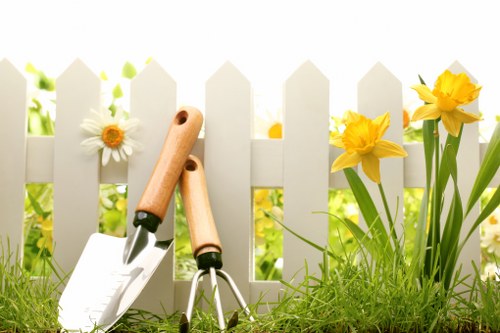
A well-maintained garden not only enhances the beauty of your home but also provides a serene environment for relaxation and recreation. Proper garden maintenance ensures that your outdoor space remains healthy, vibrant, and free from unwanted pests and diseases.
In Lewisham, where the urban landscape meets lush greenery, maintaining your garden can significantly improve your property's curb appeal and value. A meticulously cared-for garden creates a welcoming atmosphere for visitors and a peaceful retreat for homeowners.
Regular maintenance activities such as pruning, weeding, and fertilizing contribute to the overall health of your plants, promoting robust growth and preventing the spread of diseases.
Benefits of a Well-Maintained Garden
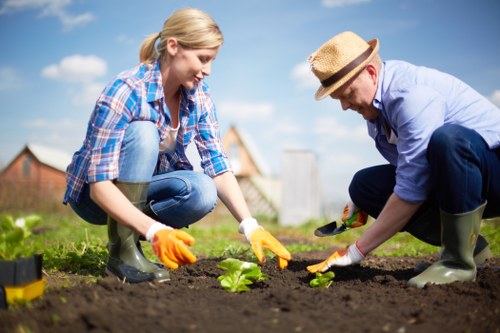
A healthy garden offers numerous benefits, ranging from aesthetic appeal to environmental advantages. One of the primary benefits is the enhancement of your property's aesthetic value, making it more attractive to potential buyers or guests.
Additionally, a well-maintained garden provides a habitat for various species of birds, insects, and other wildlife, contributing to local biodiversity. This ecological balance is essential for a sustainable environment.
Moreover, spending time in a beautifully maintained garden can significantly reduce stress and improve mental well-being, offering a natural escape from the hustle and bustle of city life.
Seasonal Garden Maintenance Tips
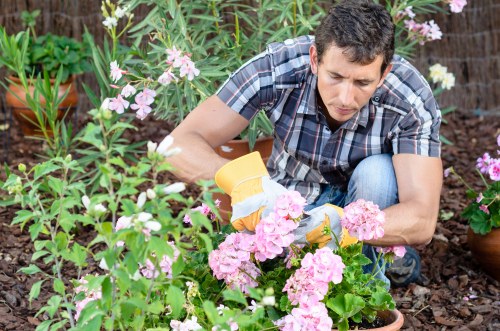
Spring Maintenance
Spring is the perfect time to rejuvenate your garden after the winter months. Begin by clearing out dead foliage and debris to make way for new growth. Pruning shrubs and trees encourages healthy development and removes any damaged branches.
Planting spring blooms such as daffodils and tulips adds vibrant colors to your garden. Additionally, fertilizing your lawn promotes lush, green grass that can withstand the upcoming summer heat.
Regular watering is crucial during spring to ensure that newly planted seeds and young plants establish strong root systems.
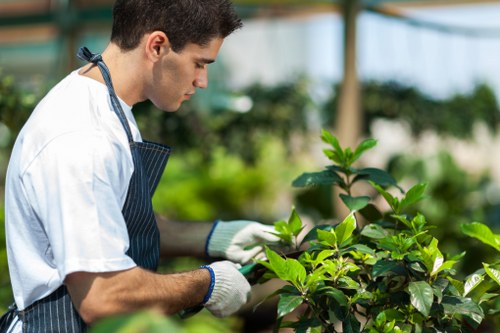
Summer Maintenance
During the summer, focus on watering schedules to keep your garden hydrated amidst the heat. Mulching helps retain soil moisture and suppresses weed growth, reducing the need for frequent weeding.
Regularly mow your lawn to maintain an even growth pattern and prevent overgrowth. Additionally, deadheading spent flowers encourages continuous blooming and extends the flowering season.
Protect your plants from pests by using natural remedies or appropriate pesticides to maintain their health and vitality throughout the scorching summer months.
Autumn Maintenance
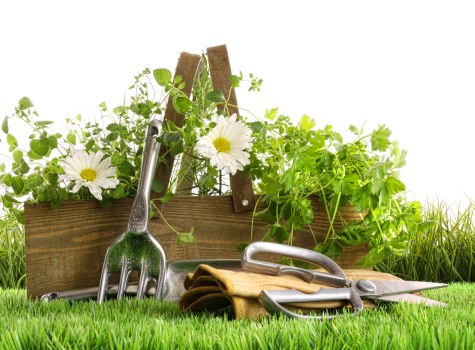
Autumn Maintenance
As autumn approaches, prepare your garden for the cooler months by performing tasks such as leaf removal and composting. Clearing fallen leaves prevents them from suffocating the grass and promotes a tidy appearance.
Planting autumn shrubs and perennials ensures that your garden remains vibrant even as the days grow shorter. Additionally, aerating your soil enhances its structure, allowing better water infiltration and root growth.
Protect sensitive plants from early frost by covering them or relocating potted plants to sheltered areas, ensuring their survival through the winter.
Winter Maintenance
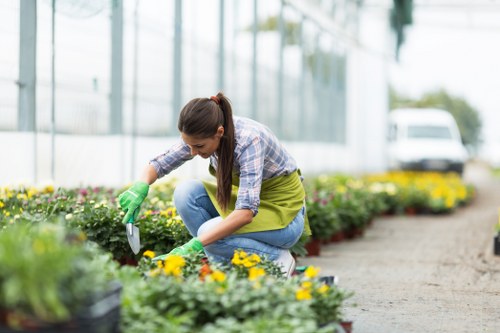
Winter Maintenance
Winter requires specific maintenance practices to safeguard your garden against harsh weather conditions. Begin by pruning hardy plants and trees to remove any damaged or diseased branches.
Protect delicate plants by using frost covers or mulching heavily to insulate the soil and roots from extreme cold. Watering should be reduced during winter, as most plants enter a dormant phase and require less moisture.
Regularly checking for signs of winter damage and addressing them promptly can prevent long-term issues and ensure your garden recovers quickly in the spring.
Choosing the Right Garden Maintenance Services in Lewisham
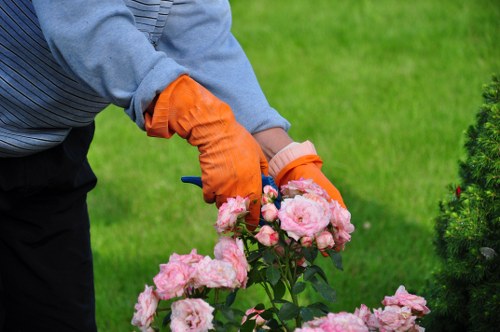
Professional vs. DIY Maintenance
Deciding between hiring a professional garden maintenance service and undertaking the tasks yourself depends on various factors such as time, expertise, and the size of your garden. Professional gardeners bring expertise and efficiency, ensuring that all maintenance tasks are performed to the highest standard.
On the other hand, DIY maintenance allows for personal involvement and cost savings. However, it requires adequate knowledge and time commitment to achieve optimal results.
Assess your capabilities and the specific needs of your garden to make an informed decision.
What to Look for in a Garden Maintenance Service
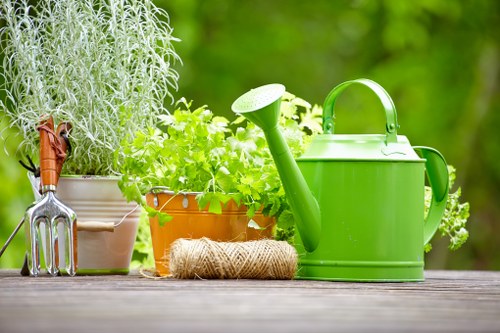
Professionalism and Expertise
When selecting a garden maintenance service in Lewisham, consider their level of professionalism and expertise. Look for companies with experienced staff who are knowledgeable about local plant species and gardening techniques.
Ensure that the service provider uses high-quality tools and follows sustainable gardening practices. Reading reviews and seeking recommendations can also help gauge the reliability and quality of the service.
Additionally, a reputable garden maintenance company should offer customized plans tailored to your garden's specific needs.
Common Garden Maintenance Tasks

Pruning and Trimming
Pruning and trimming are essential for maintaining the shape and health of your plants. Regularly removing dead or overgrown branches encourages new growth and prevents the spread of diseases.
Proper pruning techniques vary depending on the type of plant, so it's important to understand the specific requirements of each species in your garden.
Trimming hedges and shrubs not only keeps them looking neat but also promotes better air circulation, reducing the likelihood of fungal infections.
Lawn Care

Lawn Care
Maintaining a healthy lawn involves regular mowing, fertilizing, and watering. Set your mower to the appropriate height to encourage deep root growth and prevent the grass from becoming too thin.
Fertilizing provides essential nutrients that promote lush, green grass capable of withstanding pests and diseases. Additionally, proper watering techniques ensure that your lawn remains hydrated without becoming waterlogged.
Aerating the soil annually improves its structure, allowing better air and water penetration, which is vital for strong lawn growth.
Planting and Weeding
[IMG_11]Planting and Weeding
Strategic planting enhances the beauty and diversity of your garden. Choose a variety of plants that bloom at different times to ensure year-round color and interest.
Regular weeding is crucial to prevent unwanted plants from competing with your desirable flora for nutrients and water. Hand-pulling or using eco-friendly herbicides can effectively manage weed growth.
Mulching around plants suppresses weed growth, retains soil moisture, and adds a polished look to your garden beds.
Pest and Disease Control
[IMG_12]Pest and Disease Control
Early identification and management of pests and diseases are vital for maintaining plant health. Monitor your garden regularly for signs of infestation or illness, such as discolored leaves or damaged stems.
Implement integrated pest management (IPM) practices, which combine biological, cultural, and chemical methods to control pests sustainably.
Using natural predators, promoting plant diversity, and applying targeted treatments can effectively manage pest populations without harming the environment.
Sustainable Garden Maintenance Practices
[IMG_13]Eco-friendly Techniques
Adopting sustainable gardening practices minimizes the environmental impact of garden maintenance. Utilize organic fertilizers and compost to enrich the soil naturally, reducing reliance on synthetic chemicals.
Implementing crop rotation and companion planting techniques promotes soil health and reduces pest occurrences, creating a balanced ecosystem.
Additionally, reducing the use of plastic and opting for reusable or biodegradable materials contributes to a more sustainable garden.
Water Conservation
[IMG_14]Water Conservation
Efficient water management is crucial for sustainable garden maintenance. Install drip irrigation systems to deliver water directly to the plant roots, minimizing evaporation and runoff.
Collecting rainwater in barrels for garden use reduces dependency on municipal water sources and promotes eco-friendly practices.
Mulching around plants retains soil moisture, reducing the need for frequent watering and ensuring plants remain hydrated during dry periods.
DIY Garden Maintenance Tips
[IMG_15]Tools You'll Need
Equipping yourself with the right tools is essential for effective DIY garden maintenance. Basic tools include a quality pair of pruning shears, a sturdy shovel, a reliable lawnmower, and a garden hose with adjustable nozzles.
Having the appropriate tools not only makes maintenance tasks easier but also ensures that you can perform them safely and efficiently.
Investing in ergonomic tools can reduce strain and increase productivity, allowing you to enjoy your gardening activities more fully.
Time Management for Gardeners
[IMG_16]Time Management for Gardeners
Effective time management is key to maintaining a healthy and beautiful garden. Develop a maintenance schedule that outlines daily, weekly, and monthly tasks to stay organized and ensure nothing is overlooked.
Prioritize tasks based on urgency and seasonal requirements, allocating sufficient time for each activity to be completed thoroughly.
Utilize gardening apps or planners to track your progress and set reminders for important maintenance activities, helping you stay on top of your garden's needs.
Frequently Asked Questions
[IMG_17]How Often Should I Maintain My Garden?
The frequency of garden maintenance depends on various factors, including the types of plants, climate, and garden size. Generally, daily tasks include watering and checking for pests, while weekly activities might involve weeding and pruning.
Seasonal tasks such as fertilizing, mulching, and preparing plants for different weather conditions should be performed as needed to ensure optimal garden health.
Adjust your maintenance schedule based on your garden's specific requirements to maintain its beauty and functionality throughout the year.
Can Garden Maintenance Increase Property Value?
Absolutely, a well-maintained garden significantly enhances your property's curb appeal, making it more attractive to potential buyers. A lush, vibrant garden can differentiate your home in a competitive real estate market, potentially increasing its value.
Investing in garden maintenance not only beautifies your outdoor space but also signals to buyers that the property has been well-cared for, reducing their concerns about hidden issues.
Moreover, additional features such as patios, flower beds, and sustainable gardening elements can further boost your property's market value.
Conclusion
[IMG_18]Maintaining your garden in Lewisham requires dedication, knowledge, and the right tools. Whether you choose to hire professional services or undertake the tasks yourself, consistent garden maintenance ensures a beautiful and healthy outdoor space.
Embrace sustainable practices and stay informed about seasonal requirements to keep your garden thriving year-round. A well-maintained garden not only enhances your property's aesthetic but also contributes to a peaceful and enjoyable living environment.
Ready to transform your garden? Contact us today to book your garden maintenance service and enjoy a stunning outdoor space all year long.

